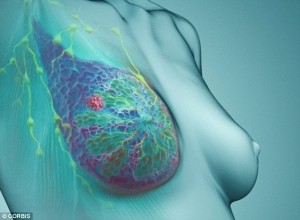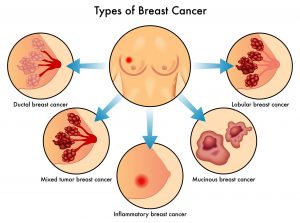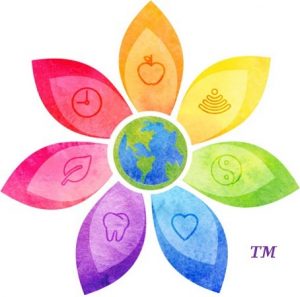
An Inflammatory Breast Cancer (IBC) diagnosis can be scary. But just like any other forms of breast cancer, remember that IBC is not an automatic death sentence. The most important thing you can do if you suspect you may have IBC is to know all of your options before you decide on a course of action.
The 411 on Inflammatory Breast Cancer
IBC Inflammatory Breast Cancer (IBC) is rare, accounting for 1 to 5 percent of all Breast Cancers. It may be on the rise, however, according to a report published in Oncology Journal. Here are some more facts about IBC:
- IBC effects are young women under age 50 most.
- African American women make up a large number of IBC patients.
- Obese women with IBC have a slightly higher risk of mortality, according to a study by MD Anderson Cancer Center.
- Men can get inflammatory breast cancer as well.
Signs of Inflammatory Breast Cancer
Inflammatory Breast Cancer is different than other forms of Breast Cancer. Most of the time there is no visible lump. It is also often mistaken for infection.
Here are some other tell-tale signs of IBC:

Of all the different types of breast cancer, inflammatory breast cancer (IBC) can often be the hardest to spot on your own. Practice early detection!
– Enlargement in one breasts.
– A bruised or pinkish-red appearance.
– Heat.
– Dimpling on the surface of the skin.
– Pain or tenderness.
– Enlarged lymph nodes around the area of the breast, under the arm or above the collar bone.
Inflammatory Breast Cancer can spread fast. Some studies, such as a 1999 investigation published in the journal Clinical Cancer Research, connected IBC to an over-expression of an Insulin Growth Factor protein. This protein can be responsible for rapid cancer metastasis and appears in higher concentrations in IBC patients when compared to those without IBC. Another reason for quick IBC metastasis may be because it is not confined to a tumor. It resides inside cells that are close to lymph vessels.
Inflammatory Breast Cancer is Not an Automatic Death Sentence!
Whatever the genetic markers surrounding inflammatory breast cancer, however, the most important thing for you to keep in mind is that there are MANY things you can do to turn it around.
Remember that “[o]nly 5–10% of all cancer cases can be attributed to genetic defects.”
The main factor that can “turn on” genetic markers for Inflammatory Breast Cancer is the same as any other cancer or chronic disease: stress, inflammation and the poor lifestyle choices and eating habits.
How can you support your body naturally? Follow the guidelines of the 7 Essentials™ everyday:
 #1 Let food be your medicine.
#1 Let food be your medicine.
Food is literally the food for your cells. If you commit to eating healthy, organic, cancer-fighting food, you feed healthy cells, not the cancer.
#2 Reduce your toxic exposure.
Toxins can create major inflammation in the body, among other things. Take action to detox your body and remove everyday toxins from your environment.
#3 Balance your energy.
Everything is energy, including you! You can help balance your energy through balancing your hormones and considering modalities such as acupuncture, chiropractic and EFT/tapping.
#4 Heal your emotional wounds.
Chronic stress and unresolved emotional issues can lead directly to chronic disease. When you honor your emotional state enough to heal your emotional wounds, especially trauma, you do your state of mind a favor and it may just save your life!
#5 Embrace biological dentistry.
Think that the condition of your teeth and gums don’t have anything to do with overall health? Think again! Conditions such as root canal, cavitations and especially heavy metal overload caused by amalgams can have a huge impact on your Breast Cancer risk.
#6 Repair with therapeutic plants.
Certain plants and herbs can help you prevent and maybe even heal Breast Cancer. Learn about and utilize cancer-busting herbs such as curcumin in tumeric and sulforaphane from broccoli sprouts on your healthy breast journey.
#7 Adopt very early detection.
Make sure you get the right kinds of tests if you suspect you may have inflammatory breast cancer and or any other type of breast cancer. Thermography testing can detect inflammatory conditions like IBC years before they are found with traditional tests or exams. Specific tests can help detect potential cancer-related inflammation. These include C Reactive Protein, IGF-1, homocysteine levels and vitamin D levels. Work with an integrative doctor or cancer coach that will support you through this journey.
© 2018 Dr. Veronique Desaulniers – All Rights Reserved
 Submitted to for publication to Kettle Moraine Publications by the author, Dr. Veronique Desaulniers, better known as Dr. V, is the founder of The 7 Essentials System ™, a step-by-step guide that teaches you exactly how to prevent and heal Breast Cancer Naturally. To get your F.R.E.E. 7 day mini e-course, and to receive her weekly action steps and inspiring articles on the power of Natural Medicine, visit http://breastcancerconqueror.com/.
Submitted to for publication to Kettle Moraine Publications by the author, Dr. Veronique Desaulniers, better known as Dr. V, is the founder of The 7 Essentials System ™, a step-by-step guide that teaches you exactly how to prevent and heal Breast Cancer Naturally. To get your F.R.E.E. 7 day mini e-course, and to receive her weekly action steps and inspiring articles on the power of Natural Medicine, visit http://breastcancerconqueror.com/.
